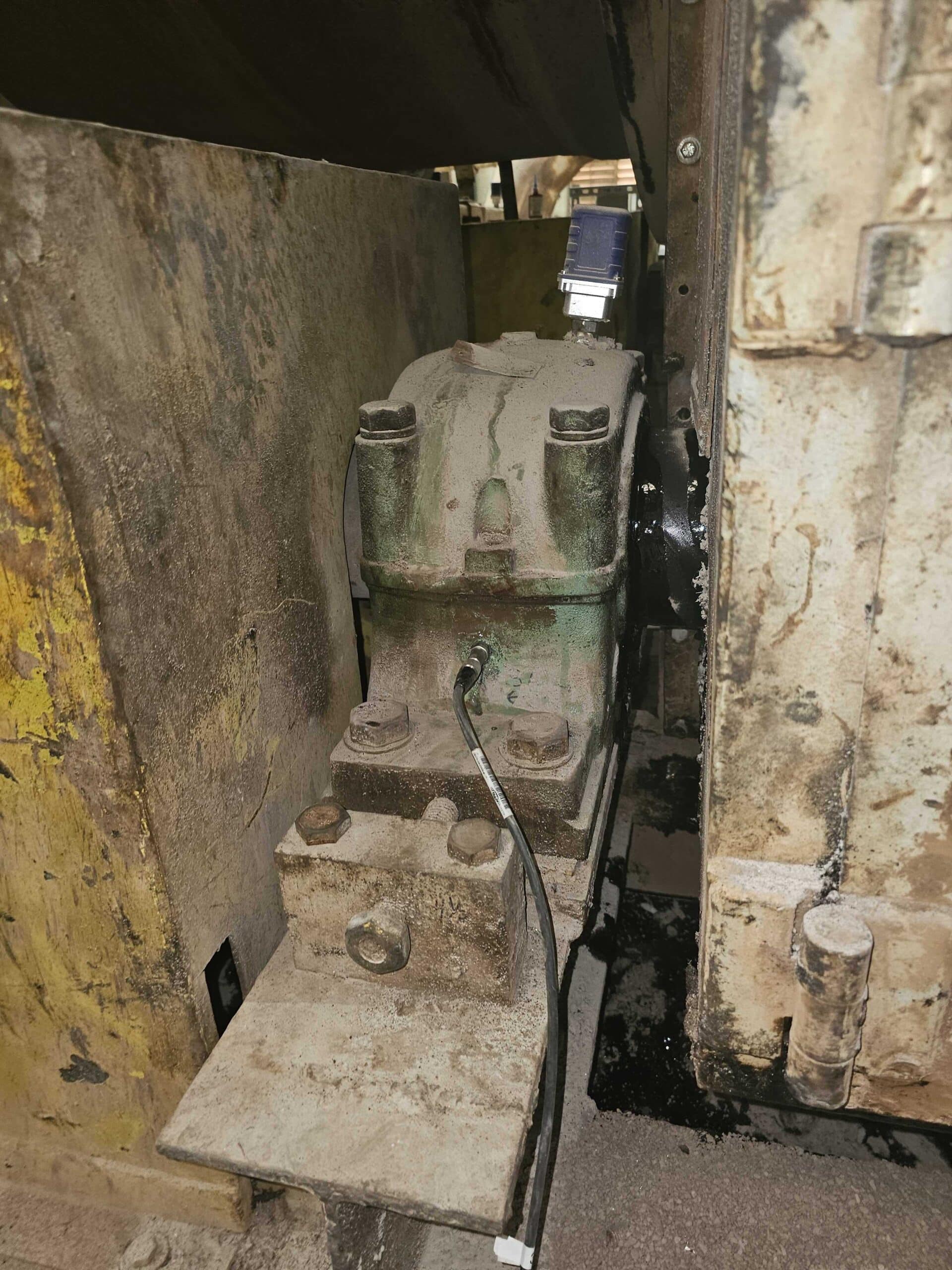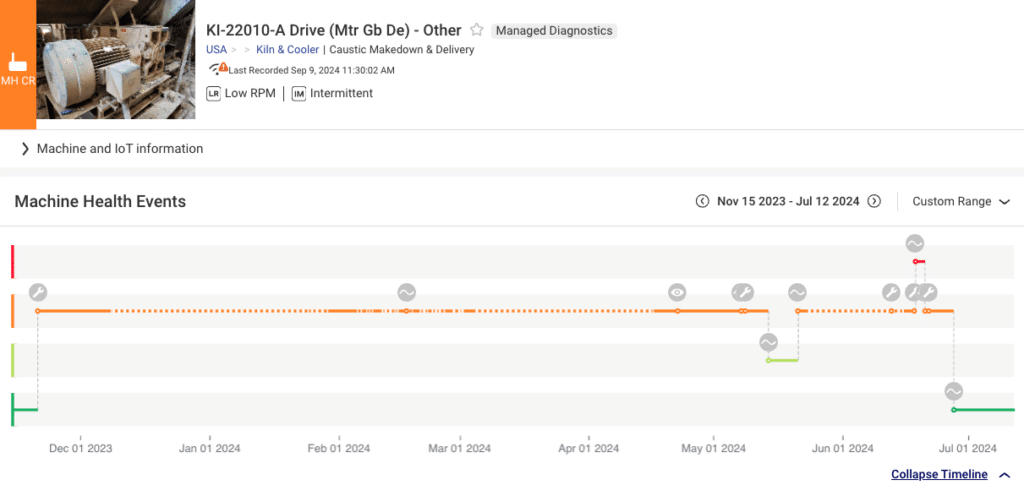
A leading metals and mining manufacturer, operating dozens of facilities across North America, faced a significant challenge in monitoring one of their most critical pieces of equipment: a rotary kiln with a rotating rate of 23 RPM, far below the lower limit of standard vibration analysis.
Industry – Metals and Mining //
Machine – Rotary kiln //
Fault Type – Gear wear and misalignment //
<25 RPM Kiln Requires Unique Machine Health Approach
The manufacturer’s massive incinerator, essential for melting sand, is the center of the production process. With only one kiln per facility, any unplanned downtime could result in substantial financial losses and production delays. Complicating matters more, the kiln’s internal temperature exceeds 200 degrees Fahrenheit, creating a hazardous environment for maintenance workers.
Initially, the company installed Augury’s Machine Health solution on the kiln, which measures temperature, magnetic flux, and vibration levels. However, the kiln’s slow rotation rate made it difficult to collect reliable data. The kiln is a barrel-shaped steel enclosure, approximately 12 feet in diameter, rotating at a mere 23 RPM, far below the lower limit of standard vibration analysis. This low frequency results in minimal vibration energy, making it challenging to detect subtle changes in the machine’s condition.
Augury’s Low-RPM Monitoring Solution Uncovers Critical Gear Issue
A lot was riding on one machine–not just continued production, but consumer demand, customer satisfaction, and the company’s brand integrity. Recognizing the limitations of standard monitoring techniques, Augury’s team of experts recommended a novel solution: installing a newly developed high-frequency, ultrasonic sensor. It offered two key advantages that addressed the unique challenges posed by the rotary kiln.

Firstly, it was capable of collecting a longer data samples. By extending the sampling period, it could collect data over multiple rotations of the kiln, providing a more comprehensive picture of the machine’s behavior and enabling the detection of subtle variations that might occur only once per revolution.
Secondly, the ultrasonic component of the sensor enabled the detection of very high, ultrasonic frequencies. This capability was crucial for identifying issues in low-speed components within the slow-rotating kiln, such as the gears in the drive mechanism. It can detect early signs of wear, gear mesh, impacting, inadequate lubrication, or misalignment in these components before they manifest as visible vibrations.
The customer strategically placed sensors at key points including the drive end, non-drive end, and the gearbox. This comprehensive coverage ensured that data was collected from all critical areas of the machine.
Almost immediately after installation, an anomaly was detected. The data showed distinctive peaks indicating potential gear wear or misalignment. Augury’s advanced algorithms analyzed the low-frequency data, and identified these subtle changes. An alert was sent, triggering a collaborative effort between Augury’s analysts and the customer’s maintenance team.
The maintenance team’s initial inspection of lubrication and other elements appeared normal. However, looking at the persistent abnormal data, Augury’s vibration analysts guided the maintenance team to look for specific signs of mechanical looseness in the internal gear. This data-driven approach led to the discovery and subsequent repair of a problem with the gear mesh.

After the team made the necessary repairs, Augury’s Ultra Low RPM system continued to detect unusual vibration levels. Further inspection led to the discovery of a loose bolt, which was initially tightened but continued to cause issues. The customer’s team decided to reach out to the kiln manufacturer and they learned that a specialized wrench was required for proper tightening of the problematic bolt. Once the correct tool was acquired and used, Augury confirmed the machine finally returned to normal operation.
Crisis Averted, Downtime Avoided, Savings Realized
Without Augury’s low-RPM Machine Health solution and cross-team collaboration, the customer would have continued operating the kiln with undetected issues. The gear would have eventually failed catastrophically, potentially destroying the gearbox, damaging other kiln components, halting plant operations, and posing a severe safety hazard to workers.
Fortunately, with data-driven detection and early action, the customer avoided an estimated 3,696 hours of unplanned downtime. This translates to approximately 154 days of continuous operation and approximately $108,000 in repair costs.
In the metals and mining industry, where supply chain commitments are critical, the ability to deliver products on time can be the difference between retaining and losing major contracts. By collaborating with Augury and championing the new Ultra Low-RPM solution, this leading mining manufacturer not only avoided a potential disaster but reinforced their position as an industry leader committed to leveraging technology and partnership for continuous improvement.
Want to learn more? Just reach out and contact us!




